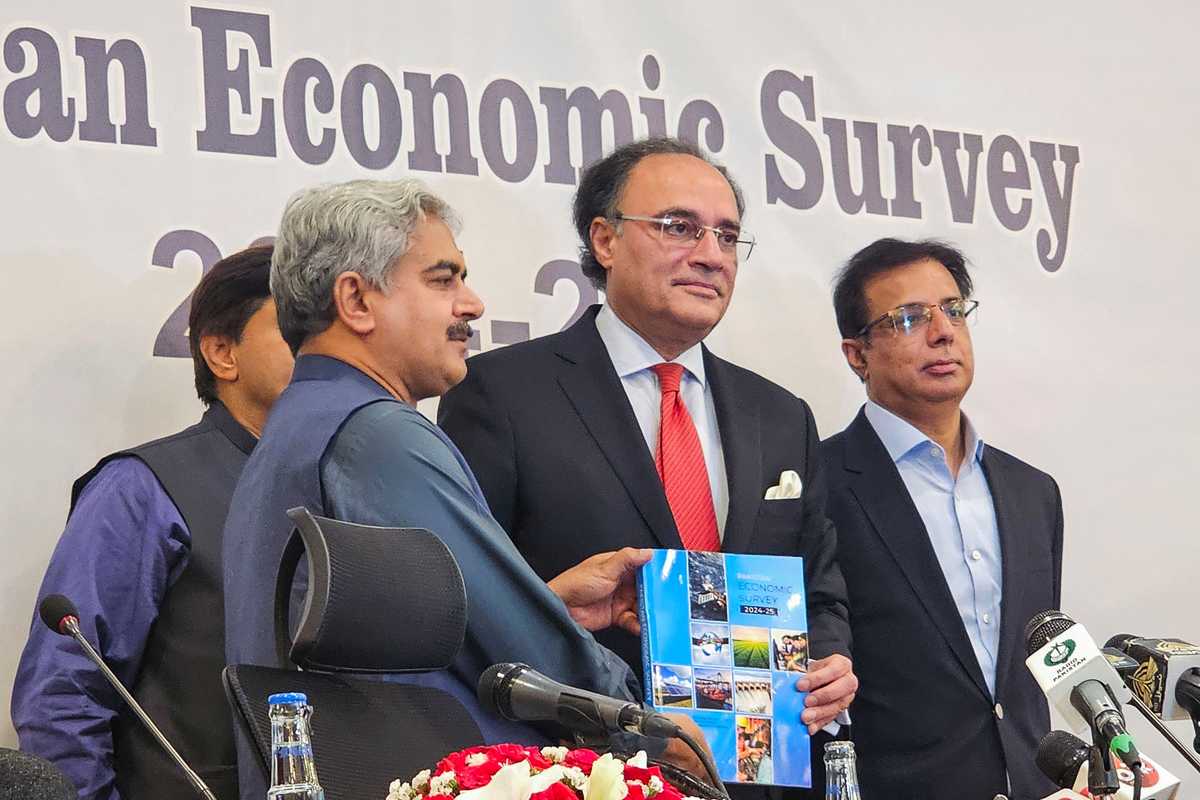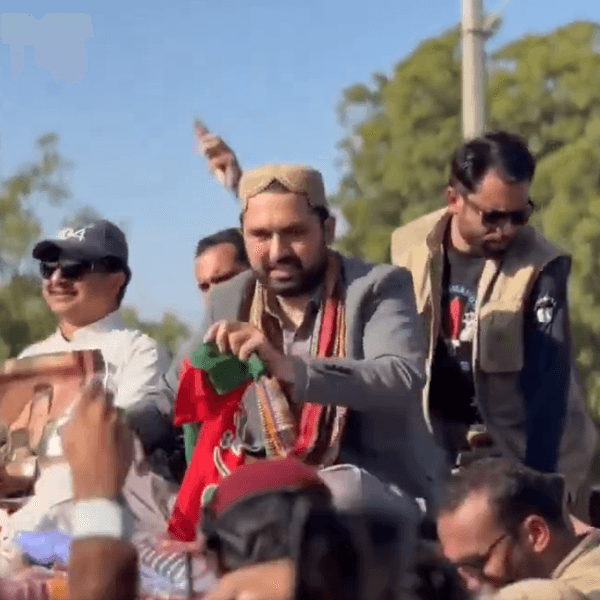Pakistan’s economy grows 2.7% in FY25, misses 3% target: Economic Survey
IMF-backed reforms stabilize finances, but structural challenges remain
Business Desk
The Business Desk tracks economic trends, market movements, and business developments, offering analysis of both local and global financial news.

Pakistan Finance Minister Muhammad Aurangzeb shows a copy of the economic survey of fiscal year 2024-2025 during a news conference in Islamabad, Pakistan June 9, 2025.
Reuters
Pakistan’s economy grew by 2.68% in the 2025 fiscal year missing the target of 3.0%, according to the Economic Survey of Pakistan released Monday.
The country’s inflation rate dropped sharply from 20.7% in April 2024 to just 0.3% in April 2025, with the average inflation for the fiscal year standing at 4.7% — down from 26% the previous year. Officials credited fiscal discipline, tight monetary policy and exchange rate stabilization for the decline.
A $7 billion International Monetary Fund program, spanning 37 months, helped restore policy credibility and provided financial support for reforms, the report said. Investor confidence improved, with company incorporations rising 27.5%.
Fiscal deficits shrank to 2.6% of GDP from 3.7%, while tax revenues surged by 26.3% to 9.3 trillion rupees ($33.4 billion) during July-April. The current account also shifted from a $1.3 billion deficit to a $1.9 billion surplus, aided by higher exports and record remittances.
The State Bank of Pakistan cut interest rates, boosting private-sector credit and economic activity. Moody’s and Fitch upgraded Pakistan’s credit ratings, reflecting international confidence in its reforms.
Challenges Remain
Despite progress, structural issues persist. A young population demands more jobs, requiring reforms in education, vocational training and labor-intensive sectors like agriculture and manufacturing. Small businesses and regional disparities also need attention for inclusive growth.
The digital economy offers potential, with IT exports benefiting from a skilled workforce. However, weak infrastructure, regulatory hurdles and a lack of digital skills — especially among women and rural communities — limit expansion.
Pakistan’s government emphasized the need to shift from short-term stabilization to long-term reforms. Its economic plan, URAAN, focuses on export-led growth and investment to build a more resilient economy.
"Foundations for recovery are strengthening, but sustaining momentum requires deeper reforms," the report concluded.







Comments
See what people are discussing